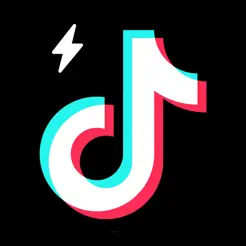Bybit and okx which is better?
Dec 05, 2024
OKX (formerly OKEx)
When comparing Bybit and OKX, two of the most popular cryptocurrency exchanges, it's essential to consider various factors, such as the type of trading offered, security, fees, liquidity, user experience, and overall reputation in the market. Both platforms offer a range of features that cater to different types of traders, but they each have strengths and weaknesses depending on your trading needs.
Here's a detailed comparison of Bybit and OKX:
1. Overview of Bybit and OKX
- Bybit: Launched in 2018, Bybit is a relatively newer exchange but has quickly gained popularity due to its focus on advanced trading features, such as derivatives trading (futures and perpetual contracts). Bybit primarily appeals to professional and experienced traders who are looking for sophisticated tools to trade cryptocurrencies. The platform is known for its leverage trading and a sleek, user-friendly interface.
- OKX: Established in 2017, OKX is a global cryptocurrency exchange that offers a wide range of services beyond just spot and derivatives trading. OKX has grown to become one of the largest exchanges in terms of volume and liquidity, and it caters to both retail traders and institutional investors. Apart from spot and derivatives markets, OKX also provides DeFi services, staking, and NFT trading, making it a more comprehensive ecosystem for crypto enthusiasts.
2. Types of Trading and Products
Bybit:
- Spot Trading: Bybit supports spot trading, but its main focus is on derivatives (futures and perpetual contracts).
- Futures Trading: Bybit is known for its advanced futures trading, offering up to 100x leverage on certain contracts. This makes it popular with professional traders who want to maximize potential returns through leverage.
- Perpetual Contracts: These are contracts without an expiry date, allowing traders to hold positions indefinitely. Bybit offers perpetual contracts for Bitcoin, Ethereum, and other altcoins.
- Copy Trading: Bybit has a copy trading feature, allowing users to replicate the trades of successful traders, which is ideal for beginners.
- Leveraged Tokens: Bybit also offers leveraged tokens, which are simplified products that give traders the chance to profit from price movements with less complexity than traditional futures.
OKX:
- Spot Trading: OKX offers a wide range of spot trading pairs for more than 150 cryptocurrencies, including major coins like Bitcoin (BTC), Ethereum (ETH), and Tether (USDT).
- Derivatives Trading: OKX offers both futures and perpetual contracts with leverage options of up to 125x for certain instruments, which is even higher than Bybit's leverage offerings.
- Margin Trading: OKX provides margin trading with up to 10x leverage.
- DeFi and Staking: In addition to traditional trading, OKX offers a variety of DeFi services and staking options for earning passive income on cryptocurrencies.
- NFT Trading: OKX has a built-in NFT marketplace, allowing users to buy, sell, and mint NFTs directly on the platform.
Key Comparison:
- For Derivatives: Both Bybit and OKX are strong contenders for futures trading, but OKX has a broader selection of leverage options, offering up to 125x leverage in some cases.
- For Spot Trading: OKX has more variety in terms of supported cryptocurrencies for spot trading, offering over 150 coins compared to Bybit's more limited range.
- DeFi and NFTs: OKX has a significant edge with its DeFi and NFT marketplace services, making it a more well-rounded platform for users who are interested in decentralized finance and collectibles.
3. Fees and Commissions
Bybit:
- Spot Trading Fees: Bybit offers 0.10% for makers and 0.10% for takers (both relatively low compared to industry standards).
- Futures Trading Fees: For futures contracts, Bybit charges 0.025% for makers and 0.075% for takers.
- Leverage Fees: If you use leverage, you might incur funding fees (a small interest fee based on the difference between the perpetual contract price and the underlying index).
- Withdraw Fees: Bybit charges a flat fee for cryptocurrency withdrawals, with rates varying depending on the asset (e.g., Bitcoin, Ethereum, USDT).
OKX:
- Spot Trading Fees: OKX charges 0.10% for makers and 0.10% for takers, which is competitive with other exchanges.
- Futures Trading Fees: For futures trading, OKX charges 0.02% for makers and 0.05% for takers. This is also quite reasonable compared to other major exchanges.
- Leverage Fees: OKX also has funding fees for leveraged trades, which vary based on market conditions.
- Withdraw Fees: OKX’s withdrawal fees are also asset-dependent, with competitive rates for most cryptocurrencies.
Key Comparison:
- Both exchanges have competitive fee structures. Bybit’s maker-taker model and 0.10% fees are similar to OKX’s structure, but OKX offers slightly lower trading fees for futures, which could be advantageous for high-volume traders.
4. Liquidity and Volume
- Bybit: Bybit has high liquidity, especially in the futures market. It ranks among the top exchanges for perpetual contract trading, and the liquidity in Bitcoin and Ethereum futures is typically excellent.
- OKX: OKX is one of the largest exchanges in the world by trading volume, especially in spot and derivatives markets. The liquidity for a wide range of cryptocurrencies is generally very high, and OKX has a solid reputation for maintaining tight spreads in both spot and futures markets.
Key Comparison:
- OKX has a slight edge in terms of overall liquidity and volume, especially for spot trading. However, Bybit excels in futures trading liquidity, which might appeal to professional traders looking for optimal execution in high-leverage trades.
5. Security and Regulatory Compliance
- Bybit: Bybit has a strong security track record, with features like two-factor authentication (2FA) and cold storage for the majority of its assets. However, Bybit has faced regulatory challenges in some jurisdictions, which has led to its temporary exit from countries like the US and the UK. It is not fully regulated in many regions.
- OKX: OKX also places a strong emphasis on security, with 2FA, cold wallets, and risk control systems. It is one of the few exchanges that has pursued regulatory compliance in regions like the EU and Asia, and it is licensed in several jurisdictions. OKX has generally been more proactive in terms of regulatory transparency than Bybit.
Key Comparison:
- OKX is more widely regulated compared to Bybit, which could offer a higher level of confidence for users in regions that value regulatory oversight.
6. User Interface and Experience
- Bybit: Bybit offers a clean, intuitive user interface with advanced charting tools and customizable settings. It is highly favored by professional traders for its advanced features, but it can be overwhelming for beginners.
- OKX: OKX has a user-friendly platform suitable for both beginners and experienced traders. It offers advanced charting tools, mobile trading, and multiple language support. The mobile app is also well-regarded for its functionality and ease of use.
Key Comparison:
- OKX offers a more comprehensive trading experience, with its broader range of features and services. Bybit, however, is more streamlined for users focused primarily on advanced derivatives trading.
7. Customer Support
- Bybit: Bybit offers 24/7 customer support via live chat, email, and help center. The support response times are generally fast, but sometimes users report longer wait times during periods of high traffic.
- OKX: OKX also provides 24/7 customer support, including live chat, email, and a help center. OKX generally has a reputation for faster and more efficient support compared to Bybit, especially in regions where OKX has a larger user base.
Conclusion: Which is Better?
- Bybit is an excellent choice for advanced traders focused on derivatives, especially those interested in futures and perpetual contracts with high leverage. The platform is also favored for its simplified trading experience and lower fees on certain derivatives products.
- OKX, on the other hand, is a more comprehensive platform, offering a wide range of services including spot trading, futures trading, DeFi, NFTs, and staking. OKX also benefits from its strong liquidity, regulatory compliance, and better customer support in certain regions.
If you're looking for a highly versatile exchange with a broad array of trading and investment products, OKX may be the better choice. However, if your primary focus is on advanced futures trading with the ability to use high leverage, Bybit
Recommend Apps










Preview: